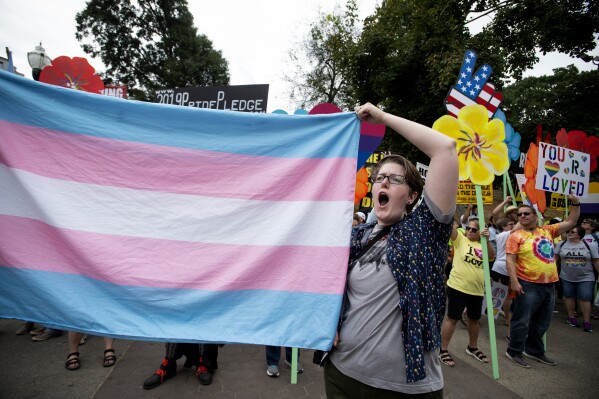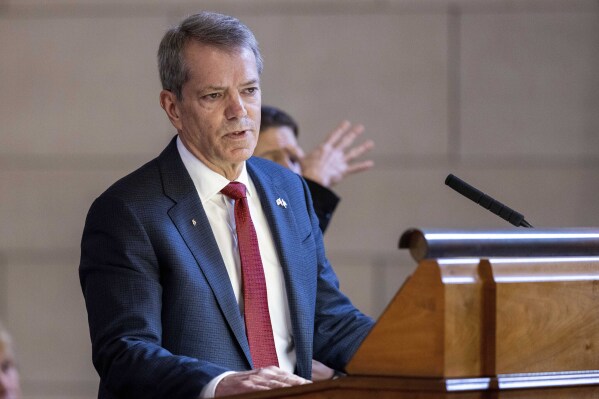Alabama can enforce ban on puberty blockers and hormones for transgender children, court says
MONTGOMERY, Ala. (AP) — A federal appeals court ruled Monday that Alabama can enforce a ban outlawing the use of puberty blockers and hormones to treat transgender children, the second such appellate victory for gender-affirming care restrictions that have been adopted by a growing number of Republican-led states.
A three-judge panel of the 11th U.S. Circuit Court of Appeals lifted a judge’s temporary injunction against enforcing the law. The judge has scheduled trial for April 2 on whether to permanently block the law.
The ruling follows a string of decisions in recent weeks against similar bans. A federal judge in June struck down a similar law in Arkansas, the first state to enact such a ban. At least 20 states enacted laws restricting or banning gender-affirming care for minors.
Bans have also been temporarily blocked by federal judges in Florida, Indiana, and Kentucky. A federal appeals court has allowed Tennessee’s ban, which had been blocked by a federal judge, to take effect.
 Female soldiers in Army special operations face rampant sexism and harassment, military report says
Female soldiers in Army special operations face rampant sexism and harassment, military report says
 Judge blocks Georgia ban on hormone replacement therapy for transgender minors
Judge blocks Georgia ban on hormone replacement therapy for transgender minors
 Planned Parenthood appeals ruling that let Nebraska abortion ban stand
Planned Parenthood appeals ruling that let Nebraska abortion ban stand
The ruling applies to only the Alabama ban, but comes as most of the state bans are being challenged in court.
Alabama Gov. Kay Ivey signed the Vulnerable Child Compassion and Protection Act into law in 2022, making it a felony punishable by up to 10 years in prison for doctors to treat people under 19 with puberty blockers or hormones to help affirm their gender identity.
Four families with transgender children ranging in ages 12 to 17 challenged the Alabama law as an unconstitutional violation of equal protection and free speech rights, as well as an intrusion into family medical decisions. The U.S. Department of Justice joined their lawsuit, seeking to overturn the law.
Major medical groups, including the American Medical Association and the American Academy of Pediatrics, oppose the bans and experts say treatments are safe if properly administered.
U.S. District Judge Liles Burke, who was nominated to the court by President Donald Trump in 2017, ruled when issuing the preliminary injunction that Alabama had produced no credible evidence to show that transitioning medications are “experimental.”
Alabama then appealed to the 11th Circuit.
Burke allowed two other parts of the law to take effect. One bans gender-affirming surgeries for transgender minors, which doctors had testified are not done on minors in Alabama. The other requires counselors and other school officials to tell parents if a minor discloses that they think they are transgender.
More GOP states are poised to enact similar bans on gender-affirming care for minors. Democratic governors in Louisiana and North Carolina have vetoed bans, but both are expected to be overridden by Republican-led legislatures.
Disclaimer: The copyright of this article belongs to the original author. Reposting this article is solely for the purpose of information dissemination and does not constitute any investment advice. If there is any infringement, please contact us immediately. We will make corrections or deletions as necessary. Thank you.






